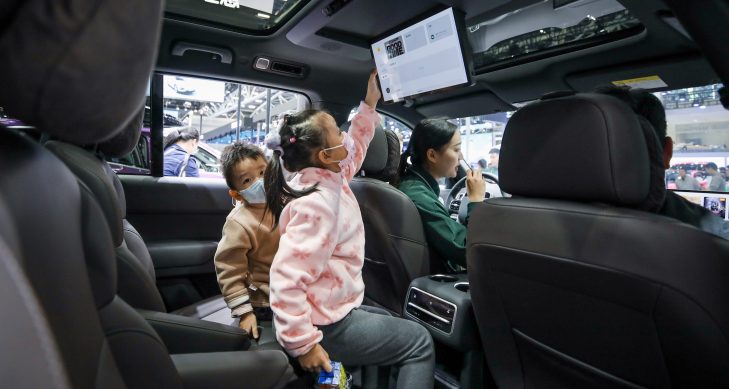Li Auto, an electric vehicle maker adored by young Chinese families, is stepping up its endeavors to build in-house automotive chips and has gone abroad to seek talent for the course.
The eight-year-old company is currently hiring five positions in Singapore to develop silicon carbide (SiC) power modules, an electrical component that uses SiC semiconductors in switching, according to the firm’s LinkedIn recruitment notices which were posted yesterday.
The headcount includes the hire of a general manager, who will be responsible for establishing Li Auto’s R&D center in the city-state and formulating the tech and product roadmaps of power semiconductors for the firm.
The recruitment in Singapore is only a small fraction of the reported team of around 160 that Li Auto has assembled to work on automotive chips, according to Chinese tech news blog LatePost. The head of the firm’s semiconductor endeavors is reportedly its chief technology officer Yan Xie, whose background is primarily in software engineering at Chinese giants like Huawei and Alibaba.
TechCrunch has reached out to Li Auto for comment on the story.
Led by internet entrepreneurs, Li Auto, Nio and Xpeng form a triumvirate of young EV upstarts in China that have defied expectations that their limited manufacturing experience would prevent them from gaining meaningful ground in the competitive, deeply entrenched auto market.
Among them, Li Auto has stood out with its sales figures. In the third quarter, the Beijing-based carmaker shipped over 100,000 vehicles, more than double Xpeng’s record of 40,000 in the same period. (Nio hasn’t announced its Q3 results, but in Q2, it delivered around 23,500 vehicles.)
Manufacturing disruptions during COVID-19 have highlighted the importance of supply chain stability to carmakers around the world, and this holds true for Chinese EV firms that rely on both power semiconductors for motor control and inference chips for advanced assisted driving, which has become a major selling point to domestic consumers.
These companies are also increasingly wary of potential chip sanctions as relationships between China and the U.S. continue to worsen. The large language model space has already taken a big hit after the Biden administration restricted Nvidia’s high-end AI chips to China.
While China has its own homegrown answers to Nvidia’s auto-grade chips, such as Black Sesame and Horizon Robotics, Li Auto, Xpeng and Nio have all committed investments to making their own chips, following in the footsteps of their American counterpart Tesla.
In September, for example, Nio released its first proprietary system-on-a-chip (SoC) for lidar. Back in 2021, Xpeng’s then head of autonomous vehicles Xinzhou Wu hinted that the company might consider working on AV chips. Wu, a Qualcomm veteran, recently left Xpeng for a senior position at Nvidia, a move that has been seen as the semiconductor giant’s attempt to catch up in the auto chip making game.
